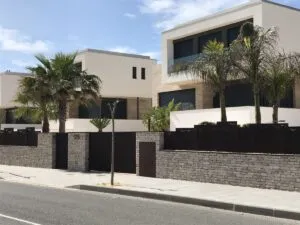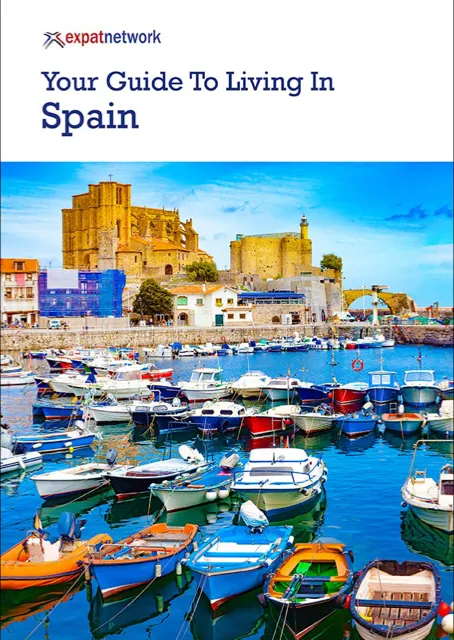Spanish Expat Mortgages – A Guide

If you are buying property in Spain and need to take out a mortgage to finance the purchase you need to understand how to obtain a mortgage. There are similarities between Spanish expat mortgages and what you may be familiar with at home but it is vital that you understand the differences.
How much deposit do I need?
Residential/Holiday Home
- If your income is in Euros – 30%
- If your income is not in Euros – 40% unless the mortgage is above €100,000
- This is a general guide and varies between the banks.
How much can I borrow?
The percentage of the property cost that is mortgaged is known as the Loan-to-Value (LTV) percentage. It’s based on the lower of the valuation or purchase price. For non-residents (who don’t pay tax in Spain) the maximum LTV is 60-70%% but depends on property price and financial profile of the buyer. For fiscal taxpayers the maximum is 80%.
Your ability to borrow depends on your debt-to-income (DTI) ratio. Spanish banks will allow around 1/3 of your net income to cover your current financial commitments and the new Spanish mortgage repayments. The exact percentage varies from bank to bank, so it is advisable to consult a mortgage broker
Borrowing example – choice of bank is important
Mr & Mrs Smith wish to borrow €100,000 over 20 years. The repayments will be in the region of €510 per month Their joint net income is €3,000 per month. They have a mortgage of €390 per month and a car loan of €120 per month. The approval of the loan will depend on what Debt To Income ratio (DTI) the bank accepts:
| Bank A offers 30% DTI: €3,000 x 30% = €900 Bank A: €900 – €390 – €120 – €510 = -€120 Application declined | Bank B offers 40% DTI: €3,000 x 40% = €1,200 Bank B: €1,200 – €390 – €120 – €510 = €180 Application approved |
Types of income accepted by the banks
Acceptable income
- Employment income, including salary, bonus, commissions, etc.
- Self-employment income, including salary and dividends
- Rental income
- Pension income
Unacceptable income
- Child maintenance
- Social security benefits
How can I prove my income?
- Employed: Annual tax statements (P60 or equivalent), payslips, work contract
- Self-employed: Tax returns
- Owners of Limited companies: Annual accounts, Tax returns
- Rental income: Rental contracts, Tax returns
- Pension income: Tax returns, annual pension statements
- In addition to the above, bank statements showing income received
Costs of buying in Spain
Fees and taxes relating to the property purchase and the mortgage set-up are generally 9-13% of the property price, depending on the region of Spain. The buyer generally must prove they have these funds before the mortgage is agreed.
Approximately 9-13% of the property cost depending on the region. Consisting of:
- 6-10% Property Tax depending on the region
- Notary & registry approximately €1,000
- Bank arrangement fee 0% – 1.5% depending on the Bank
- Valuation: €400 depending on the price of the property
- Solicitor and Mortgage Broker
Source of deposit
- If the deposit for your purchase in Spain is coming from equity release/refinance of your existing property, the application may be declined even if you meet the debt to income ratio.
- Aside from checking your current debt to income ratio, the bank’s assessment also considers your ability to save money. Please consult a mortgage broker before starting the process.
What type of mortgage?
Spanish banks usually offer a mortgage rate related to the European base rate the Euribor (e.g. Euribor plus 1.5%). The percentage added to the Euribor depends on various factors, mainly the LTV, the income/debt profile of the client and the term of the mortgage. The monthly payments on a variable rate mortgage will go up or down according to movements in the Euribor. Fixed-rate mortgages are also available for the whole term, usually offered at a higher addition to the Euribor but with the certainty that repayments won’t change.
Currently Buy-to-Let and Interest Only mortgages that are common in the UK and other countries are not yet offered by Spanish banks. If you plan to rent out your new Spanish property, potential rental income won’t be considered in your DTI calculation.
How to apply for a mortgage?
While it is possible to walk into a Spanish bank branch and apply for a Spanish expat mortgage, you are likely to get a better deal by applying via a licenced broker. They will have access to better deals than are on offer in the high street and will know which banks are best suited to a buyer’s financial profile. They can help with presenting the financial documents required and are permitted to keep the buyer updated throughout the purchase process.
Buying process
- Once your offer on the property is accepted, you will usually be required to pay a holding/reservation deposit to reserve the property.
- You will usually be required to pay a further 10% of the value of the property within an agreed time period.
- IMPORTANT: In most cases, deposits are not subject to you obtaining a finance. It is advisable to have a mortgage approved in advance before committing to purchase the property.
The mortgage process
- Case assessment – the broker will invite you to share your financial details via an online affordability check process. It’s designed to ask all the details needed to assess your case but you can also send additional information by email or discuss anything that’s unclear in your first conversation with the adviser.
- No-obligation quote – Once assessed, if you qualify in principle for a mortgage, you will receive a no-obligation quote. There is no obligation to proceed with an application. The quote outlines the terms of the mortgage and what fees and taxes will be payable.
- Administration fee – If you decide to proceed with a mortgage application an administration fee is payable. This comes with a money-back-guarantee if Mortgage Direct is not able to secure you the mortgage. It can cover multiple applications with different banks or for different properties. It does not have an expiry date.
- Supporting documentation – Your broker will advise what documents will be needed to support your application and will discuss the opening of a Spanish bank account with the proposed lender. You are advised to appoint a lawyer before signing the reservation contract and paying the deposit. You will also need to apply for an NIE number (foreigner identity number).
- Approval – On the strength of the documentation provided, the selected bank will approve or decline the mortgage subject to valuation.
- Initial Approval Fee – At this stage the broker will inform you of the Initial Approval Fee that is due before the valuation is instructed. This is a fixed percentage of the mortgage amount with a minimum amount.
- Valuation – The proposed lender will require the property valuation to be carried out before they give the formal approval of the loan and they will usually select a company at random from their panel of independent valuers although under the new legislation, the client has the right to select their own company (approved by the Bank of Spain). The valuation fee must be made before the valuation can be instructed.
If the valuation is suitable, the bank will confirm the conditions and will then liaise with you, the agent and both lawyers to calculate the funds that must be made available in your account. Once the funds are in place, the arrangements for completion can be made.
- Completion – Completion takes place at a notary office and you or your legally appointed representative must attend. After the deeds have been signed, the cheques are distributed, the keys are handed over and the mortgage process is completed.
Your broker should be available at all stages to help you understand the process for Spanish expat mortgages and to keep you updated about your case. Holders of the Bank of Spain’s official broker licence are permitted to liaise with the lender on behalf of the borrower. Unlicensed brokers may only introduce you to the lender and must cease their involvement at that stage.
Mortgage Direct have been operating in Spain since 2006. They were one of the first brokers to achieve the Bank of Spain’s official licence (introduced in 2020), are completely independent and have a wealth of experience in a market where contacts are everything and premium service is key.

To assist you in planning your move to Spain download our Guide containing all the information you will need to make the move:
